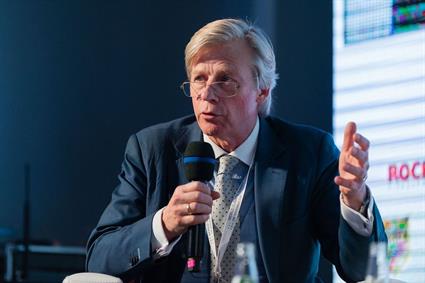

The IPCC’s climate change report has made it clear that limiting global warming to 1.5°C is not an optional goal. And while the world needs visionary leaders and disruptive tech, it also needs significant investment to push this goal forward. This year’s COP24 side-event was dedicated to this debate.
Dwight D. Eisenhower famously said, “If a problem can’t be solved, enlarge it.”
The COP24, held between 2 and 14 December 2018 in Katowice, Poland, may have been widely reported as a ‘cop-out’ after the US, Russia, Saudi Arabia and Kuwait refused to approve an international consensus text that welcomes the Intergovernmental Panel on Climate Change’s (IPCC) Special Report on Global Warming.
However, many opine that now is the time for private companies and impact investment stakeholders to take over the reins from the politicians to get the job done.
The latter part of the UN climate conference saw government representatives, cities, corporations, commercial, institutional investment banks, NGOs and industry experts congregating for the World Climate Summit – Investment COP. This side-event
was all about strengthening the bottom-up approach – collaborations across sectors and industries.
Not an optional target
The clarity in goal has never been so clear – to limit global warming to 1.5°C, we need to achieve not only net-zero emissions by 2050 but net-positive for the latter part of the century thereafter. Carbon positive requires us to go beyond achieving net-zero carbon emissions to actually create an environmental benefit by removing additional carbon dioxide from the atmosphere.
A common thread running across all panel discussions was the transition towards renewable energy, energy efficiency, renewable heat and cooling as well as getting transportation off oil.
“You can’t bring coal back because the economics are fundamentally failing against renewable energy in many sectors and across many geographies. We need to be net-zero by 2050,” said Peter Boyd, CEO of Time4Good and the former COO of the Carbon War Room.
Some are already committed. For instance, Maersk announced its goal to reach carbon neutrality by 2050. This entails carbon neutral vessels being commercially viable by 2030. IKEA has set the ambition of becoming 100% renewable by 2020. Schneider Electric launched its Villaya-Emergency solution, a solar microgrid fitted into a standard shipping container.
Money matters
Finance, like in most cases, is one of the cornerstones in this mission. The economic case for climate-smart development is now clearer but the amount of resources needed to mobilise change is huge.
The World Bank Group is playing a leading role, delivering a record-breaking USD 20.5 billion in direct financing for climate action in 2018. Senior Director for Climate Change at the World Bank, John Roome said, “There is cause for optimism with clear evidence of the economic momentum driving finance and markets towards low-carbon opportunities, especially as the cost of renewables and batteries falls.”
Investment companies are increasingly looking into funding climate-friendly companies. One of the investors testifying to this was Matthew Arnold, Managing Director and Global Head of Sustainable Finance at JPMorgan Chase.
“Green Finance is now a thing. We will finance responsible companies and our definition and assessment of ‘responsible’ spans a company’s commitment, capacity to do so and track record,” he said on the bank’s USD
200 billion green fund.
Businesses need to be thinking not only of the bottom line, but also of the positive contributions they can make to society-at-large. The thing is, it’s difficult to change the risk appetite of conservative
companies.
Teus van Beek, Innovation Manager at Wärtsilä drove the point home and said, “I think about how old my grandchildren will be in 2050 and by then what type of environment they will be living in.”
Van Beek emphasised that at Wärtsilä we already have the technology and the expertise to create disruptive solutions for greener shipping. What is needed is positive financial incentives whereby maritime operators who are considering adopting clean solutions are incentivised to do so. A key factor here is legislation.
“But the challenge with legislation is that it takes such a long time to develop. And if we wait until that happens, it’s going to be too late,” he added.
Combining forces
Van Beek pointed out that while businesses need a clear signal from the government, it’s the role of businesses, like Wärtsilä and other corporations, to show government where they need to act. “Because we can better see what is currently happening in the markets, we need to set the pace and lead policy, not necessarily the other way around,” he said.
Inger-Anne Blindheim Madsen, CEO of the Norwegian company, CleanTech Innovation AS highlighted the power of the cities and the role of harbours: “Oslo has the policy to be a zero-emission harbour by 2030 and they have an intensive cooperation from all the logistic suppliers, transport companies, the ship owners that are participating in the harbours.”
One of the projects highlighting the urgency is the Wärtsilä-led SEA20. Its video garnered praise for depicting the human element that can so easily be forgotten during conference talks. Van Beek took the opportunity to pose a call to action. “We are creating a global movement focused on the radical transformation of the marine and energy industries, moving towards an ecologically sound, digitally connected and collaborative ecosystem. Join us in developing the future, together.”


